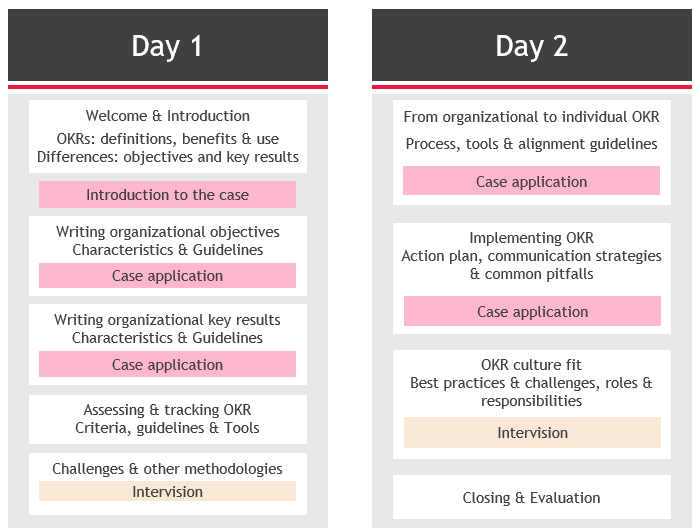The goal setting and measuring methodology
Are you looking to align your team members with your organization’s vision? Do you want to lead and manage with a strategic framework that clarifies goals, enhances communication, and prioritizes collaboration? Do you want to write clear and simple objectives and measure them effectively? If you’re ready to think big picture and achieve success, then the OKR Training is perfect for you!
Training type: In-Company
Timing: 2 days
This training will enable you to:
Pedagogical approach
This training mixes theory and practice. Each theme is first introduced based on the most up-to-date field knowledge, and various examples are added from the trainer’s own experience.
The concepts and methodologies are then experienced in workshops, with real or fictional cases.
The participants can practice and interact about their own understanding and experience of the concepts.
The workshops are rounded up by feedback and debate sessions that allow everyone to put their own practice into perspective.
Content
Day 1: Organisational level OKR
Day 2: Team Level OKR
This training is aimed for
No prerequisites are required.
Typical program

